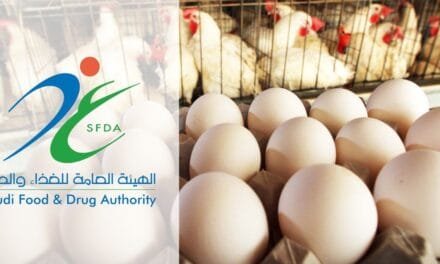With better technical know-how and novel ideas, the Indian bakery industry is growing leaps and bounds every day and moment. Manish Veeramani explains FSSAI food safety practices for bakery industry, pest control, hygiene, allergen control, labelling, and cleaning standards for compliance.
Food Safety Issues in Bakery Industry
The bakery industry, which used to be characterised by products such as cakes and bread, today has a massive range of products on offer, ranging from cookies, toasts, puffs, macaroons, and so on. With better technical know-how and novel ideas, this industry is growing leaps and bounds every day and moment.
Bakery business has matured today to a great extent. This can be attributed primarily to two basic reasons. Firstly, there has been a tremendous amount of innovation, which has resulted in the development of tailor-made products with respect to end applications. These include ingredients from chocolates, toppings, fillings, flavours, and so on. Secondly, more and more people are taking this up as a profession, which has increased job opportunities and availability of a variety of products. With the consumers ready to pay premium rates, it all appears to augur well for this sector diversifying itself multifold in the coming years.
However, irrespective of the demand and manufacturing processes involved, the ground reality remains that this is a largely unorganised sector. This may result in food safety being compromised resulting in harm to the consumers and initiation of legal actions by the FSSAI.
So what are these specific risks that may pose a threat to food and how are these to be mitigated? Below we look at some specific Pre-Requisite Programs that are of importance to this sector which when implemented in all righteousness will ensure food safety compliance.
Importance of Pest Control in Bakery Industry
Where there is food, the presence of pests is unavoidable. And in the bakery industry, it becomes more relevant considering the range of products and the ease in availability of food for the pests. Hence it is imperative that pest control is of prime importance with regards to the implementation and maintenance of food safety programmes in the manufacturing facility. Most of the times pest control is outsourced by the FBO to an external service provider. However, that does not absolve the FBO of focussing on pest controls. Some of the key points with regards to pest control which the FBO shall monitor are as follows:
- The proper pest control programme in place which identifies the relevant pests based on available data and previous results or sightings.
- Appropriate treatment protocols that are specific to the identified target pests, as well as adequate treatment frequencies.
- Use of chemicals which are of non-toxic nature only within the manufacturing facility.
- The pest control operators from the subcontracted agency need to have relevant training, the credentials of which shall be monitored by the FBO.
- There shall be regular monitoring on the trends in pest control activity by the subcontracted agency and communication to FBO on the required corrective measures.
- Relevant support documentation such as the MSDS for chemicals used, the operating licence of the pest control operator, documented treatment schedules and standard operating procedures for the same.
Cleaning, Sanitation and Operational Controls for Bakery Industry
This is another critical area in the bakery industry. Since the products are basically high-fat products, the biggest challenge in cleaning is to get rid of the greasy residues left out on the cream mixers, cookie dough mixers, baking pans, mixing whisks. Some of the key points with regards to cleaning, sanitation and maintenance which the FBO shall monitor are as follows:
- An adequate supply of hot and cold water at all hand-wash and equipment-wash stations. This water shall comply with water potability requirements in line with IS 10500: 2012.
- Use of cleaning agents and sanitising agents that are compatible with the equipment.
- Use of appropriate descaling agents for the trays and pans used for baking of the products.
- All equipment and storage containers shall be of compatible materials. They shall be free from rust, damage, etc. It is most advisable that all stainless steel equipment used in processing such as mixing bowls and whisks belong to the grades of SS 304 or SS 316. Food-grade plastic containers shall be used for storing other dry ingredients, and these shall be labelled with product name, batch number, and best-before dates.
- Waste shall be disposed off at regular intervals and shall not be allowed to get collected within the FBO premise. The containers for waste shall be adequately labelled and be equipped with securely fixing lids.
- Proper stock rotation systems such as FIFO (First In First Out) and FEFO (First Expired First Out) shall be followed.
- There shall be a proper system for monitoring temperatures such as baking temperatures and cold storage temperatures, which are of importance to food safety.
Preventing Cross-Contamination in Bakery Industry
Cross-contamination is basically defined in two ways. One is that there is microbiological contamination from a more susceptible food product into a less susceptible one. Another one is that when an ingredient or component of one food is found to be present in another food, it is technically neither an ingredient nor a component. The easiest and most relevant example is cross-contamination between products with egg and those without egg. Also in bakeries, there are products like vegetable puff and chicken puff or a vegetable pizza and a non-vegetable pizza which not only differ microbiologically but in a religiously sensitive country like ours can have consequences unthought of. Some simple measures to address prevention of such occurrences could be:
- Production planning such that vegetarian products are prepared first and the non-veg products.
- Separate storage facilities for veg and non-veg materials and finished products.
- Colour coded equipments, tools, chopping boards and even aprons.
- Proper segregation between the equipments in use for veg and non-veg products such as the pizza slicers and chopping boards.
- Preferably the work stations and process flow shall be such that the non-vegetarian ingredients do not enter the workspace station of vegetarian products.
Personal Hygiene Standards for Bakery Workers
This is another very critical factor contributing to food safety compliance to the bakery industry. Most of the small-scale units give hardly any importance to this aspect, which can lead to serious consequences to the consumer. Even the FSSAI has very strict norms on personal hygiene requirements as it is a key driver of food safety. The basic expectations in this case:
- The workers within the facility shall be free from any injuries, infections or diseases.
- They shall follow proper grooming protocols such as wearing hairnets during the production activities, wearing neat and proper aprons, have well-trimmed and clean nails.
- It is mandatory that all employees working in the process floor shall undergo a medical examination once a year. They have to be subjected to proper treatments in case of any issues identified in their medical reports.
- Every employee working in the manufacturing area and especially the ones coming in direct contact with food need to be inoculated with the typhoid vaccine periodically as per the schedule.
These are very critical in small units as they generally do not follow these protocols. It thus becomes the moral and legal responsibility of the FBO to ensure that these requirements are fulfilled.
Packaging and Labelling of Bakery Products
The most commonly used packaging material for bakery products is polyethylene which may be either LDPE or HDPE. The primary requirement is that this material needs to be of food-grade compliance grade. This is generally established by ensuring that this material conforms to the requirements of IS:10146 which lays out the specification for polyethylene in contact with foods.
The labelling requirements are also very clear with regards to the information expected to be conveyed through the labels. The labels shall mandatorily include the following information:
- Name of the product with a clear indication of veg or non-veg in the form of green coloured or brown coloured logo respectively.
- The FSSAI licence number, with name and address of FBO.
- Nutritional information or nutritional facts per 100 gm or per serving size. This shall include as bare minimum the details such as energy value in kcal, proteins, carbohydrates (carbohydrates shall also include the type of sugars), fats in gm, and the amount of trans fat in gm. This information shall also include any specific nutrient for which there are any claims made on the product label. E.g., if the label states fortified with vitamins, the amount of vitamins shall also be included in the nutrition information.
- Another important aspect is the date labelling of these products. While declaring the manufacturing dates: For products with shelf life of more than three months, only the month and year are sufficient whereas for products with shelf life less than three months the day/month/year are all expected.
- Similarly, the best before dates may be declared stating the month and year or especially in case of breads the declaration shall include the number of days from manufacture or packing within which it shall be consumed.
Allergen Control in Bakery Products
Though allergens are not yet officially declared under FSSAI, the Indian food industry has voluntarily taken cognizance of this issue and many big names have already started incorporating allergy-related information on their labels. The allergens which are applicable to this bakery industry include milk and milk products, wheat (gluten), and nuts. Since the majority of the bakery products are based on wheat, it is practically impossible for bakery products to be allergen-free. However, the FSSAI has addressed this issue in a very pragmatic way by bringing in the option of declaring products as gluten-free, when gluten is less than 20 ppm or low gluten, when gluten is between 20 ppm and 100 ppm.
As a conclusion, irrespective of trends for this industry, which generally look upward, it is important that the FBOs understand their commitment towards food safety. There is no doubt that the bakery business has tremendous scope for research, development and potential for growth, but the bottom line remains that all of this needs to go hand in hand with food safety in the best interests of health and safety of consumers.
The author is lead auditor & technical reviewer, food, Bureau Veritas India Pvt. Ltd. Photo by freepik
| Also Read: An Introduction to Bakery Machinery
| Also Read: Backaging of Bakery Products
| Also Read: Role of Bread Improver in Bakery Industry

















